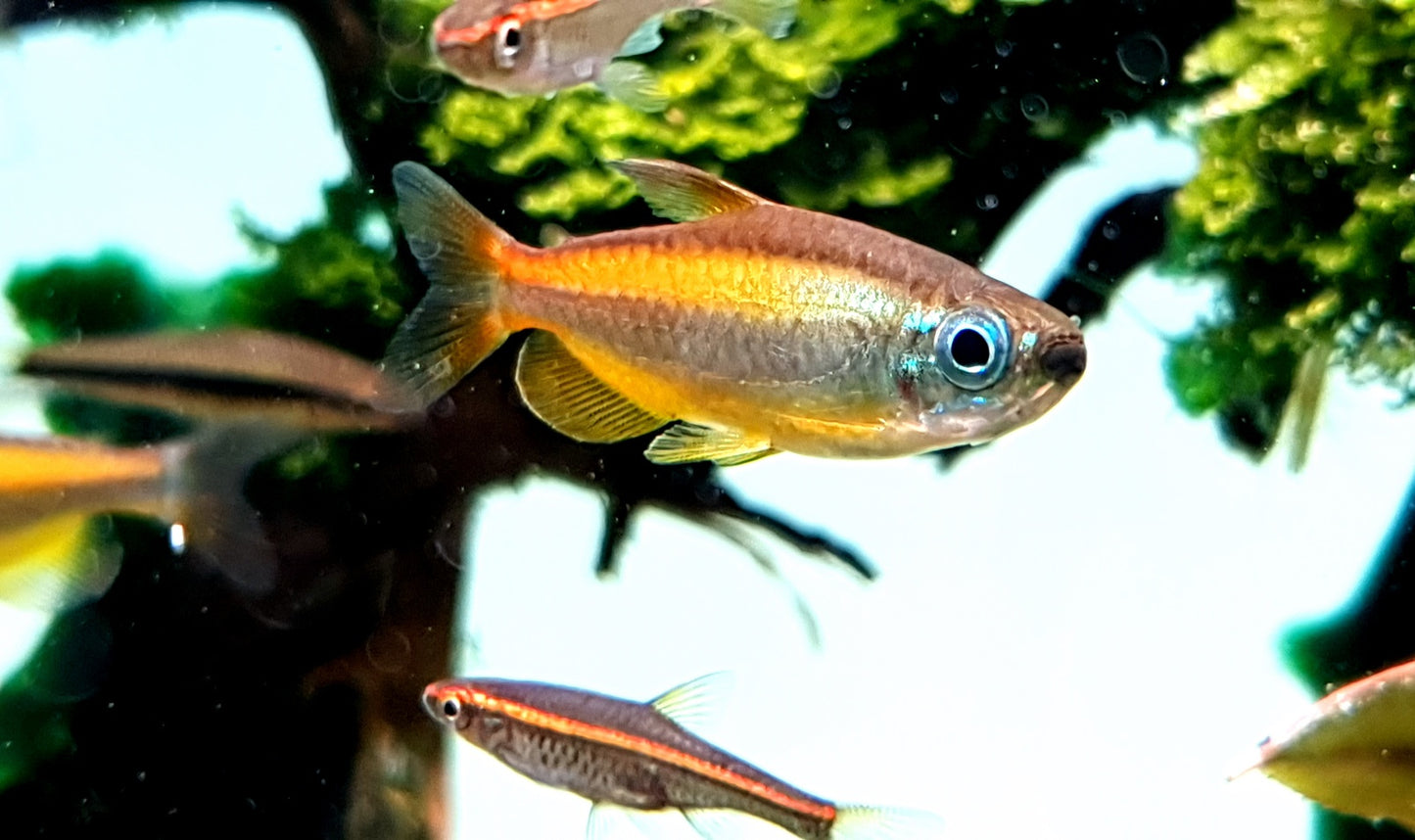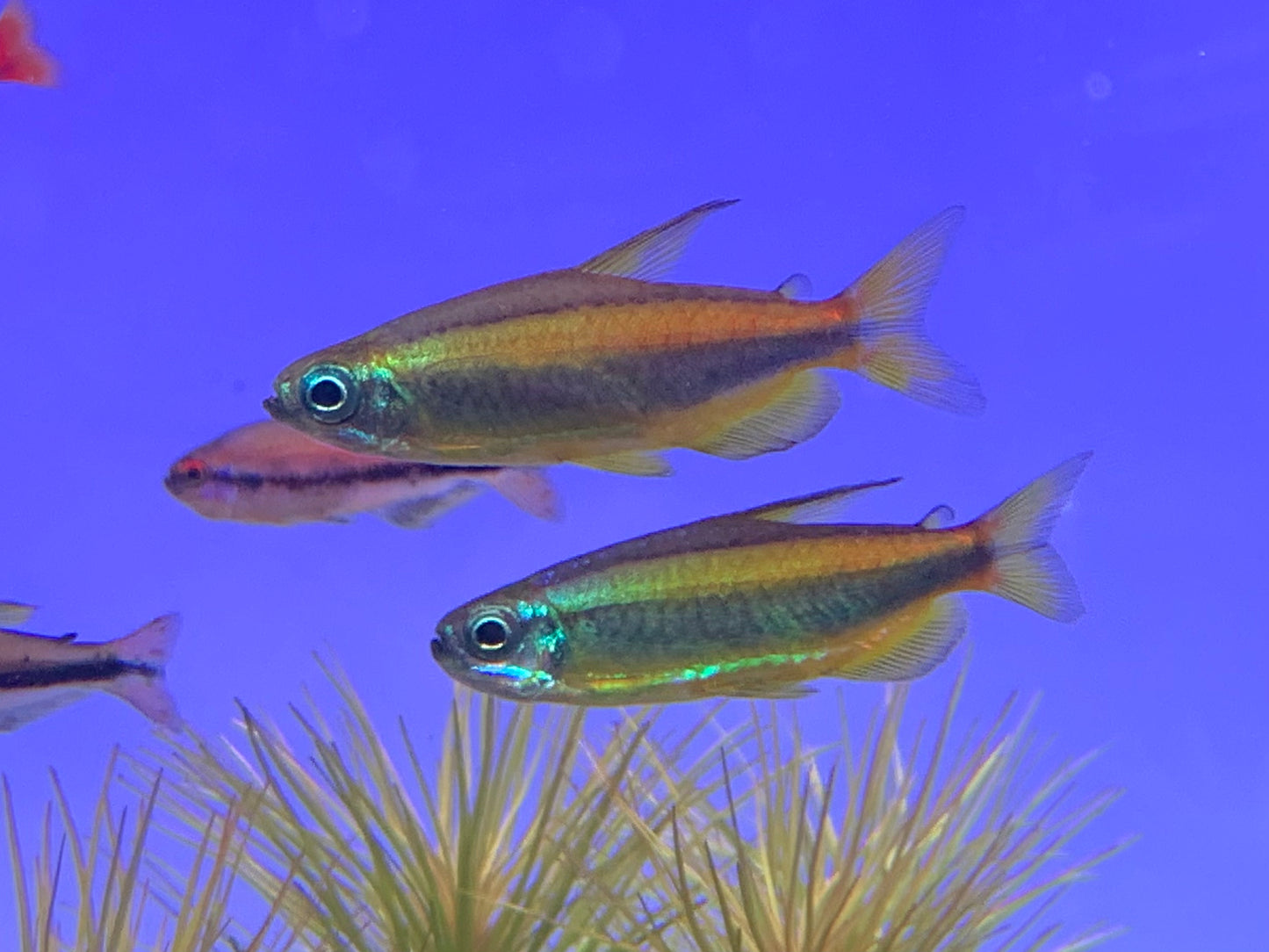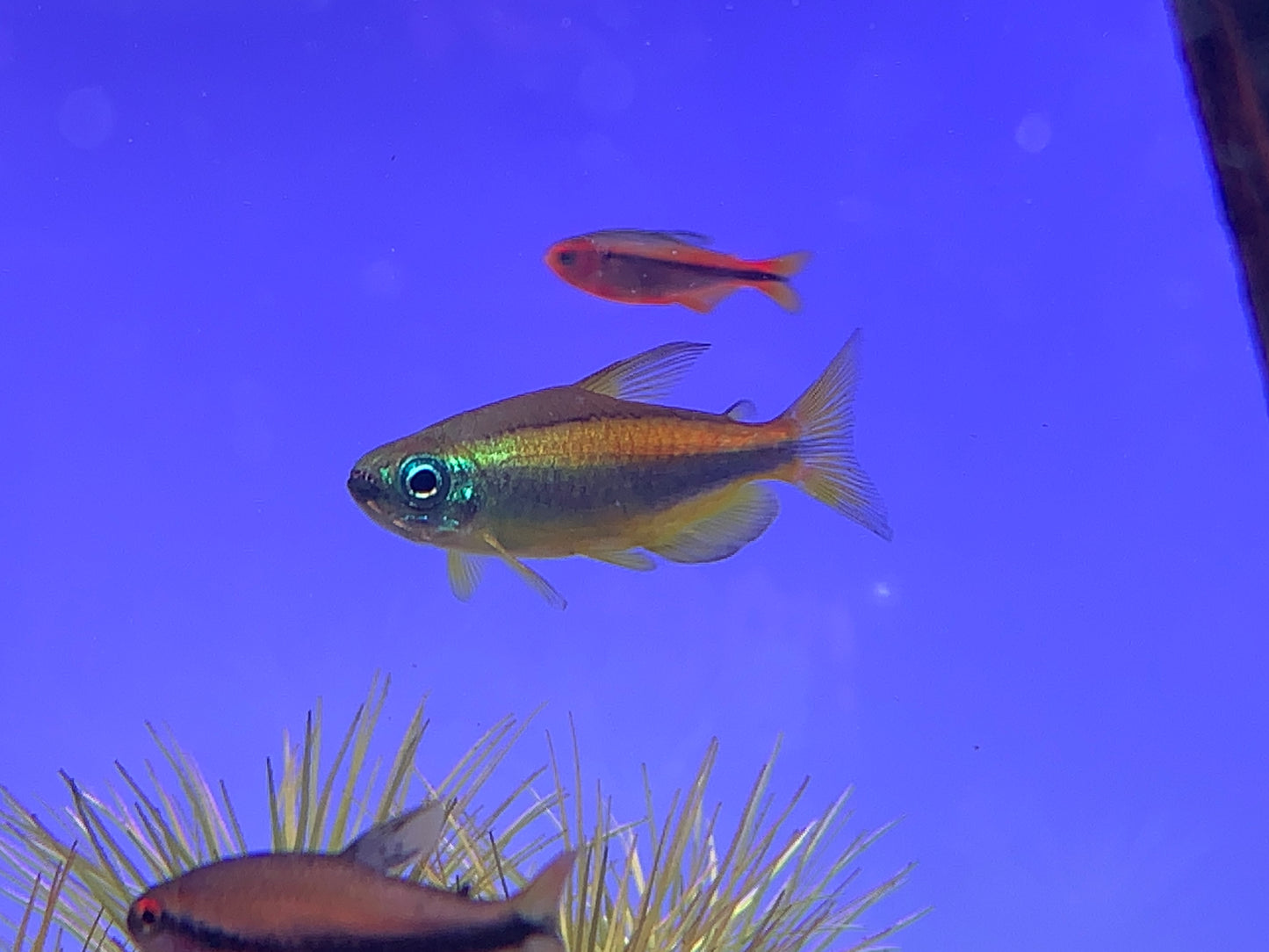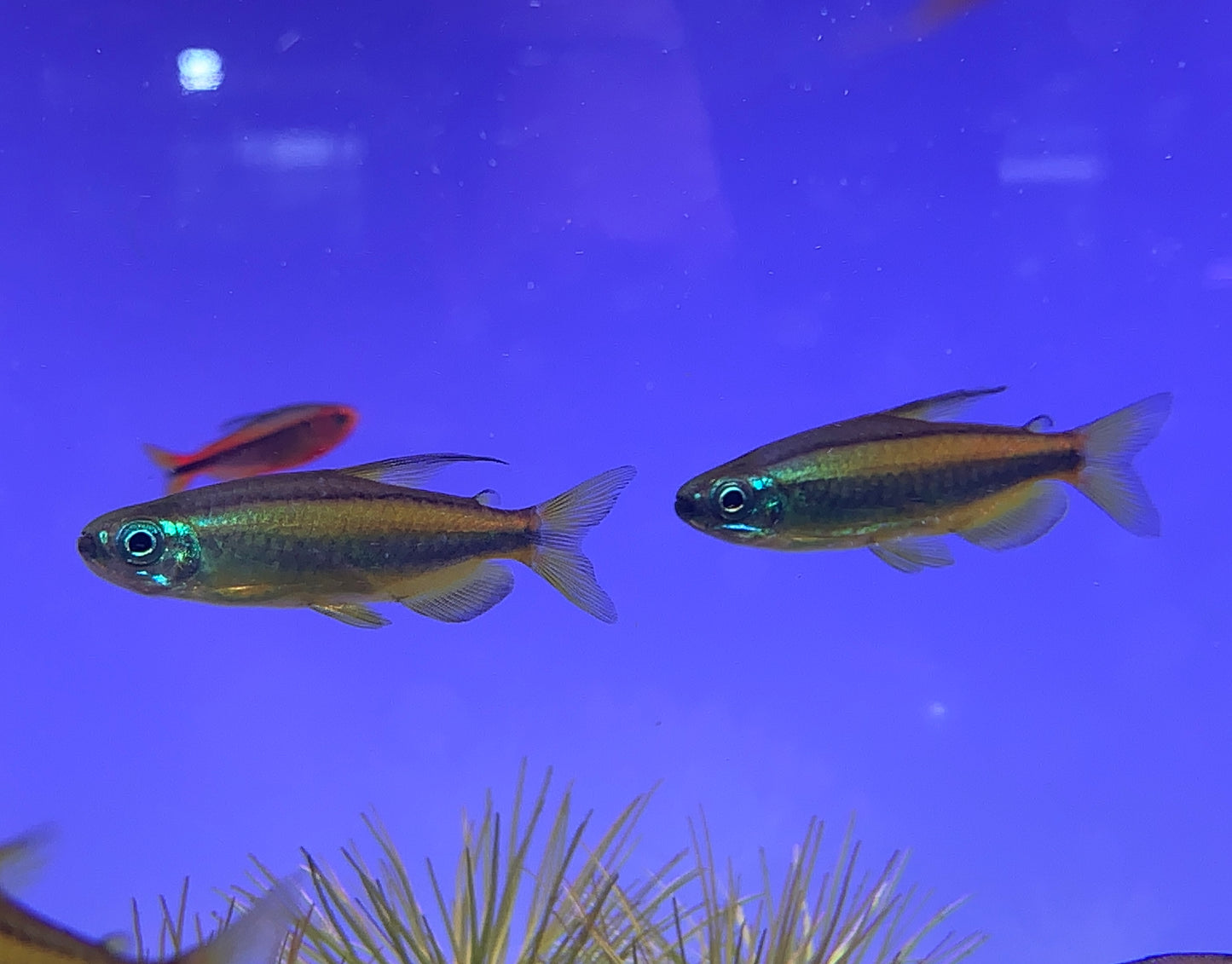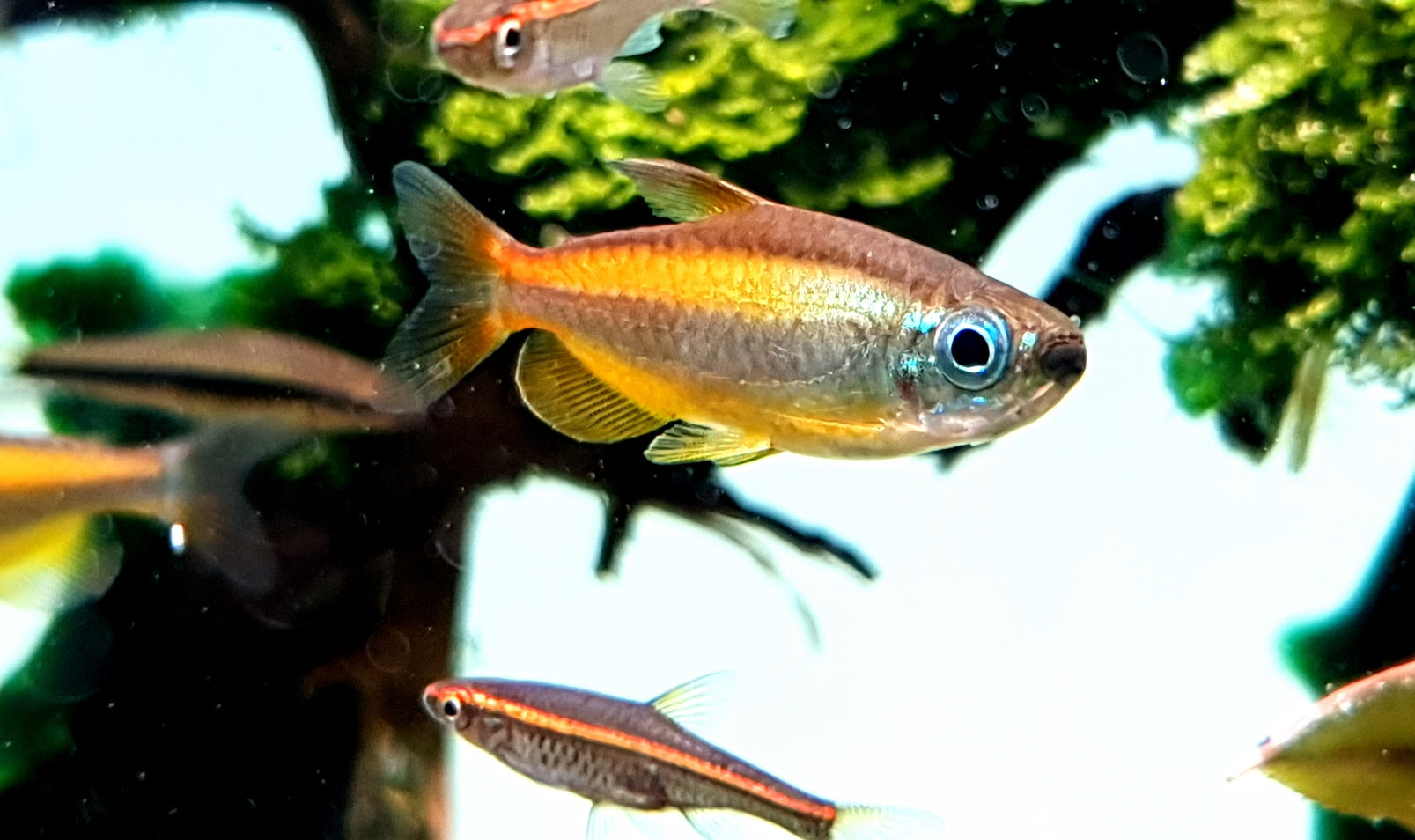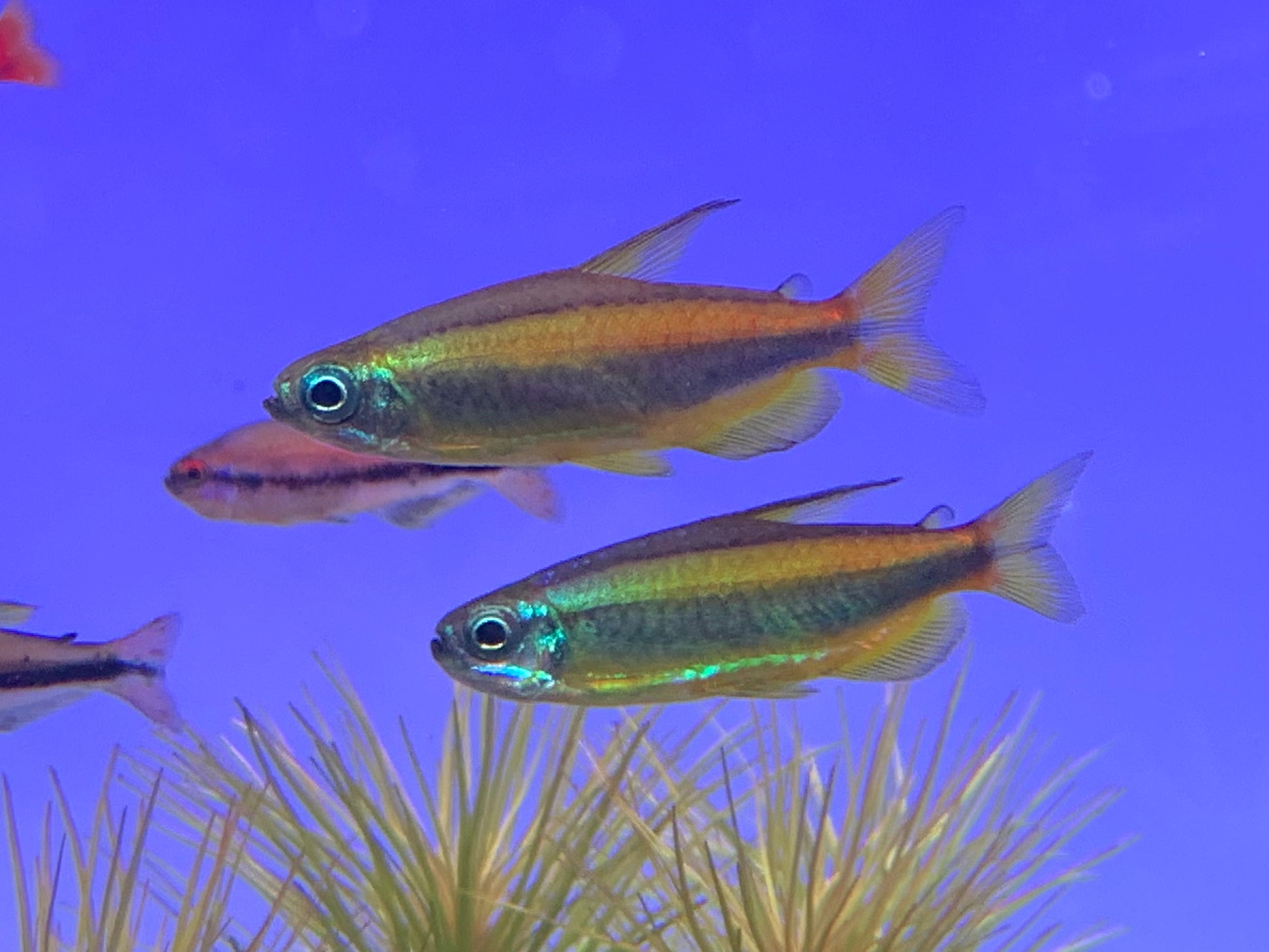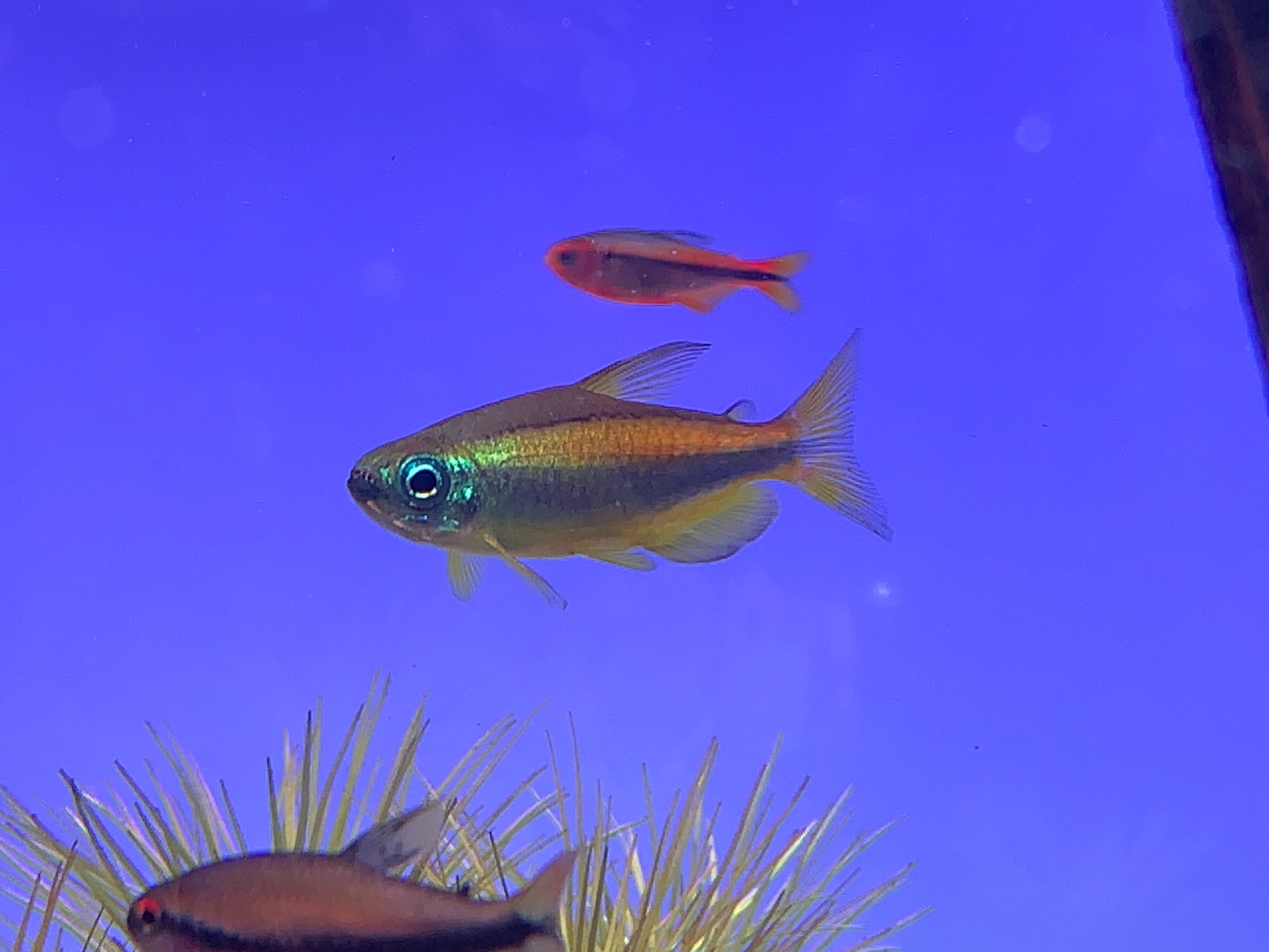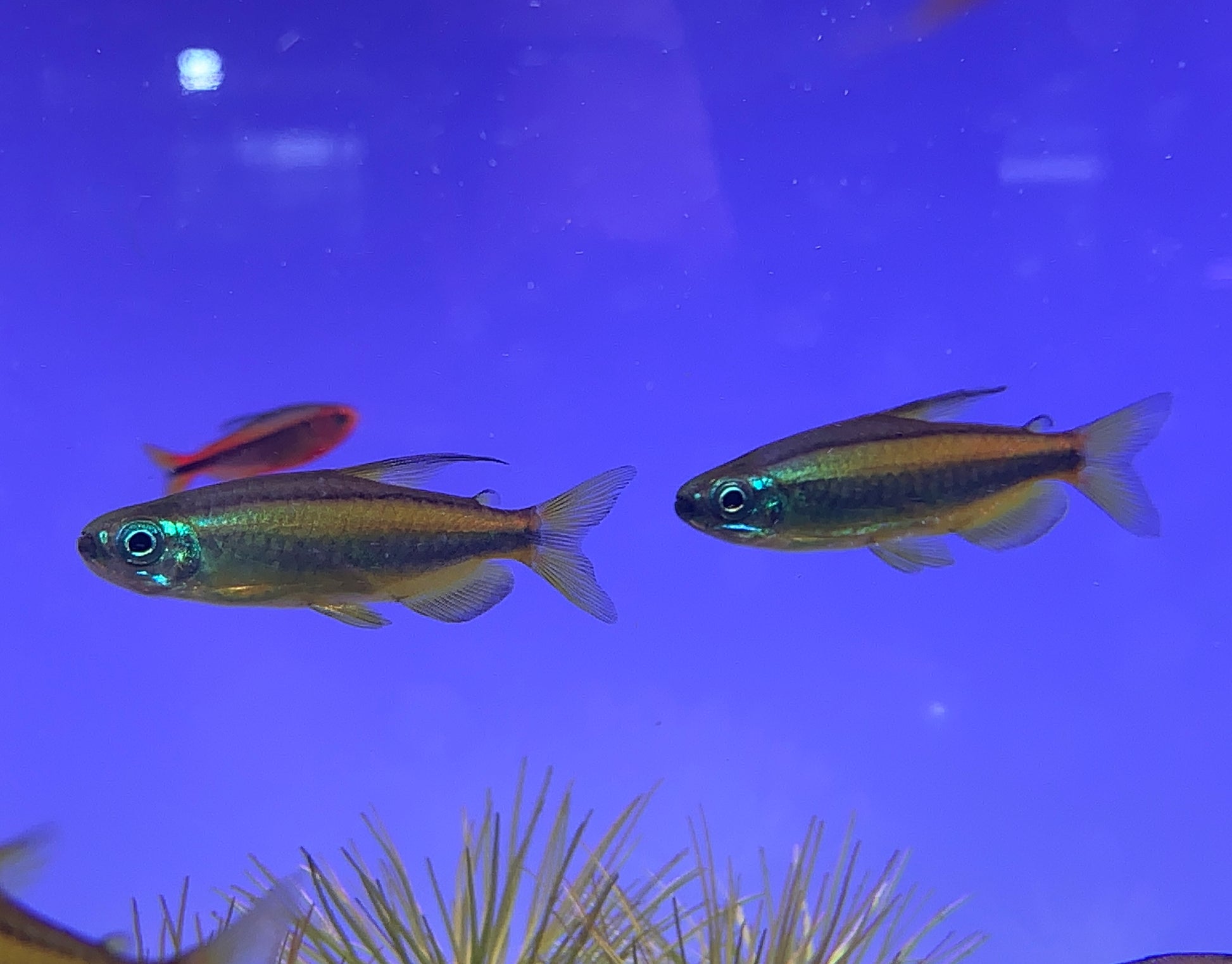1
/
of
4
Aquatic Avenue Online Store
phenacogrammus aurantiacus (Blue eyed Congo Tetra)
phenacogrammus aurantiacus (Blue eyed Congo Tetra)
Regular price
$25.00 SGD
Regular price
Sale price
$25.00 SGD
Unit price
/
per
Couldn't load pickup availability
The Phenacogrammus aurantiacus, commonly known as the Blue-eyed Congo Tetra, is a freshwater fish species belonging to the family Alestidae. It is known for its striking appearance and behavior, making it a popular choice for aquarium enthusiasts.
Key Features:
- Appearance: The fish has a slender body with shimmering scales that reflect light, giving it a metallic or iridescent quality. Its distinct blue eyes are its most notable feature, giving it the common name.
- Size: Typically grows to around 6-8 cm (2.5-3 inches) in length in captivity, though it may grow slightly larger in the wild.
- Fins: Fins are usually translucent or slightly colored, often with a delicate pattern that adds to their beauty.
Habitat:
- Natural Range: Native to slow-moving rivers and streams in Central Africa, particularly in regions with dense vegetation and soft, slightly acidic water.
-
Water Parameters:
- pH: 6.0-7.5
- Temperature: 23–28°C (73–82°F)
- Hardness: Soft to moderate
Behavior:
- Schooling: A peaceful schooling fish, best kept in groups of at least six individuals.
- Activity: Active swimmers that prefer the middle to upper levels of the water column.
- Compatibility: Gets along well with other peaceful fish of similar size, making it suitable for community aquariums.
Diet:
- Omnivorous: Accepts a wide variety of foods, including flakes, pellets, frozen, and live foods. A balanced diet with occasional protein-rich treats like brine shrimp or bloodworms will enhance their coloration.
Aquarium Care:
- Tank Size: Minimum of 30 gallons for a small school, as they need space to swim.
- Decor: Include plants, driftwood, and subdued lighting to mimic their natural habitat.
- Filtration: Moderate water flow with good filtration to maintain water quality.
The Blue-eyed Congo Tetra is not only beautiful but also relatively easy to care for, making it a favorite for both beginner and experienced aquarists. Would you like tips on setting up a habitat for them or pairing them with other species?
Share
